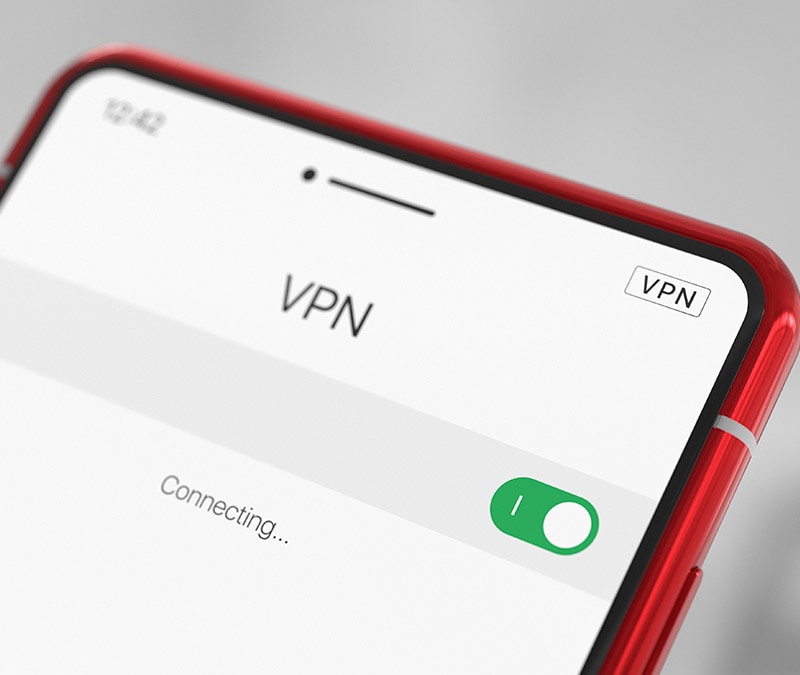Is a free VPN just as effective as a paid VPN?
Is a free VPN just as effective as a paid VPN? Find out more:

Take a step back and think about just how often we use the internet nowadays. If you have a cough, you look at an online medical forum to see what it’s a symptom of. If you’re thinking about making a purchase, you search for reviews.
We Google our most burning questions – and it’d be nice to know that we’re the only one that knows about them. Providing online privacy is where a Virtual Private Network (VPN) is worth its weight in gold. But using a VPN isn’t always expensive. In fact, there are a number of them you can find for free.
Which leaves you with yet another question: what’s the difference between a free VPN and a paid VPN?
The answer isn’t totally clear cut – even if we do have a favourite side – which means that the right option depends largely on how you browse the internet and what you’re looking for in a VPN.
What is a VPN?
Before we’re off to the races on the pros and cons of free VPNs and paid VPNs, it’s important to explain what they are and, perhaps most importantly, why they’re used.
A VPN is a software application that creates a private network connection for users browsing on public networks, which they may find in coffee shops or public libraries. These connections create a unique, temporary IP address that make computers – and their users – anonymous. The web traffic and all activity done during the session is also encrypted, meaning that no one would be able to see where you’ve been and what you’ve done without an encryption key. The key is something that only the VPN provider has access to.
Building a private connection that encrypts the traffic that’s done on it is important because everyday activities like online banking, shopping and browsing the web can expose your information if they’re done on a public Wi-Fi network. Ultimately, this makes you more vulnerable to cybercrime.
For example: if you were to check the balance of your bank account while sitting in a café browsing on a compromised public Wi-Fi network, a cybercriminal would potentially have access to:
- Your browsing history.
- Your account login details.
- Your banking statements.
- Your financial information that’s auto-saved or stored on your browser, like a credit card.
Talk about scary stuff!

Is a free VPN effective?
- At this point, you’re probably thinking to yourself that you need a VPN no matter what. That’s what often leads people down the road of free VPNs.
Free VPNs can be downloaded free of charge, as their name implies. There are many options, with providers ranging from companies with household names to businesses you’ve never heard of.
These applications provide the most basic level of service, often utilising either:
- Peer-to-Peer (P2P) network sharing. This reroutes your traffic and your data through other users’ connections and devices, rather than giving you an anonymous IP. You essentially trade IPs in this instance, and hope that the user that your traffic is going to hasn’t been compromised – because then your information will be exposed.
- Point-to-Point Tunnelling Protocol (PPTP). An early and widely adopted form of data encryption that creates a digital tunnel to hide data. It has been outstripped by more advanced forms of encryption and is considered outdated, though still provides some level of security.
Both P2P network sharing and PPTP are basic formats of encryption. They’re great for getting around geo-blocking, which blocks content based on a user’s location, but users’ are taking their security in their own hands using them as their information is easily exposed to skilled cybercriminals.
This is all to say that the most important thing to remember when it comes to free VPNs is that if you’re not paying for the product, you are the product. Companies that provide free VPNs have to make money somehow, and their profit often comes at the expense of your security.
Benefits of paid VPNs
Paid VPNs often have much stronger private connections that utilise the latest encryption standards available – meaning your browsing history and everything that goes with it is about as safe as it gets. Protocols that are commonly used on paid VPNs include OpenVPN, which is an open-source standard, or Layer 2 Tunnelling Protocol (L2TP), which is often combined with Internet Protocol Security (IPSec) to create a much stronger private connection.
All the cybersecurity talk aside, what you need to know is that paid VPNs use the strongest encryption standards available. This is opposed to free VPNs, which have no incentive to use the strongest encryption standards available because you’re not paying them to.
The VPN included in Norton 360, for example, uses bank-grade encryption to protect the information you send and receive. You can go online using a VPN on your PC, a VPN on your Mac, a VPN for Android, or VPN for iOS to check your online banking or conduct other activities. It also doesn’t log your web traffic, which means that we couldn’t profit off of your browsing.
It’s difficult to trust free VPNs, though they’re useful if you’re in a pinch and want to watch that brand new show from another country that everyone’s raving about. When it comes to online banking, shopping and browsing, you’re better off paying for a VPN so that you know your information and web traffic are actually receiving the security they deserve.
Looking for a paid VPN? Check out Norton VPN that’s included in Norton 360 today.
Editorial note: Our articles provide educational information for you. Our offerings may not cover or protect against every type of crime, fraud, or threat we write about. Our goal is to increase awareness about Cyber Safety. Please review complete Terms during enrollment or setup. Remember that no one can prevent all identity theft or cybercrime, and that LifeLock does not monitor all transactions at all businesses. The Norton and LifeLock brands are part of Gen Digital Inc.





Want more?
Follow us for all the latest news, tips, and updates.